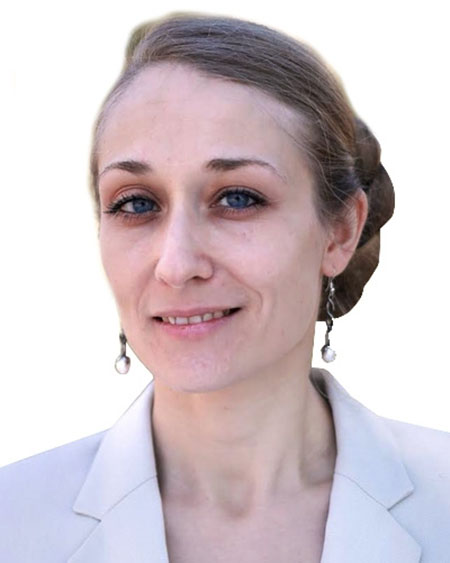Yuliya Minets
 Yuliya Minets’s research focuses on the intersection of early Christian studies, history, classics, and linguistics. She studies intellectual and social processes in Late Antiquity with special attention to the history of early Christianity, the relationship between its different local and confessional varieties, and their connections with traditional Greco-Roman culture, Rabbinic Judaism, and later with Islam.
Yuliya Minets’s research focuses on the intersection of early Christian studies, history, classics, and linguistics. She studies intellectual and social processes in Late Antiquity with special attention to the history of early Christianity, the relationship between its different local and confessional varieties, and their connections with traditional Greco-Roman culture, Rabbinic Judaism, and later with Islam.
She received her BA (2005) and MA (2007) in history from the National University of “Kyiv-Mohyla Academy” and MA in Medieval studies from the Central European University (2008). Her first dissertation, supported by the Dumbarton Oaks Fellowship, analyzed the narrative strategies that Palladius of Helenopolis, an important early Christian writer, employed in his works, the Dialogue on John Chrysostom and the Lausiac History; it used reader-response criticism in order to explain why one author could produce two such disparate compositions. After she received a degree of Candidate in History (Kyiv, 2011), the PhD program at the Catholic University of America (2017) became an opportunity to expand the vision of Christianity through the study of the Syriac and Coptic languages. This raised her interests in problems of multilingualism and language contacts in the past and brought her to the current project – The Slow Fall of Babel: Languages and Identities in Late Antique Christianity (the book is under contract with Cambridge University Press).
Her articles “Languages of Christianity in Late Antiquity: Between Universalism and Cultural Superiority” in the Studia Patristica (2017) and “Xenolalia in Christian Literature of Late Antiquity” in the Language and Culture in Early Christianity: A Companion (2018) explore different aspects of linguistic ideas and language ideologies in the late Roman Empire and the Syriac Orient. Dr. Minets was teaching in the Department of Modern Languages and Classics at the University of Alabama (2017-2018) and at the University of Notre Dame (2020). Her recent research has been supported by the Lindsay Young Visiting Faculty Fellowship at the Marco Institute for Medieval and Renaissance Studies (University of Tennessee, Knoxville, 2018), by the Seeger Center for Hellenic Studies and the Committee for the Study of Late Antiquity (Princeton, 2018-2019), and the Notre Dame Institute for Advanced Study (2019-2020).

